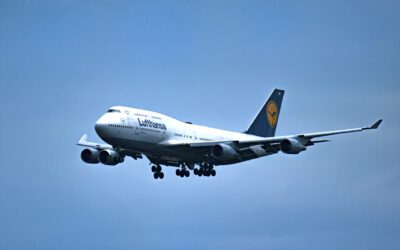Have you ever stayed at a hotel with an Internet charge of $20 per day or more, a limit on your use of its WiFi to two devices per room, a separate daily charge for Internet use for each connected device, or found the hotel’s network too slow for your needs? I’ve encountered all the above.
In the US, as an example, according to the Pew Research Center’s “Internet Project,” 90 percent of American adults have a cell phone, 58 percent have a smartphone, and 42 percent own a tablet computer. In a few years, the expectation is these numbers will rise sharply, as 74 percent of American adults under the age of 50 own a smartphone. From what I’ve observed, travelers, especially business travelers, are among the heaviest users of the Internet.
I generally travel with a smartphone, tablet and laptop. Periodically, I find my hotel’s WiFi network is either too expensive or too slow for my needs. When that occurs, I set up my own private hotspot via my cellular provider and use it to connect each of my devices to the Internet.
In addition to using my private hotspot due to the expense of my hotel’s WiFi network or slow speed, I’ve used it when my hotel throttles its bandwidth when streaming movies for entertainment, or using a VPN connection to office computers for work. Others I know have used a personal hotspot to stream presentations or when their hotel blocked websites wanted for work or entertainment.
To set up my personal WiFi hotspot I use an LTE-capable cellular router from my cellular provider, which gives me broadband speeds to which I can simultaneously connect up to 15 laptops, cellphones and tablets via Wifi.
If I had stayed at Gaylord Opryland, a Marriott property, during the last year, according to the FCC, the hotel would have blocked my personal cellular hotspot to force me to use the hotel’s WiFi network.
As I read about the FCC case against Gaylord Opryland, I kept asking myself, “Should hotels/motels have the right to block the use of competing WIFI networks or personal cellular hotspots on their properties?”
According to the FCC, Marriott Corporation has been blocking non-hotel WiFi networks at their Gaylord Opryland property for some time. The yearlong FCC investigation began in 2013 when a guest complained their hotspot was jammed. The FCC concluded Marriott had “intentionally interfered with and disabled WiFi” networks, other than their own, at the Gaylord Opryland Hotel in Nashville, in violation of the Communications Act.
Section 333 of the Communications Act states, “No person shall willfully or maliciously interfere with or cause interference to any radio communications of any station licensed or authorized by or under this chapter or operated by the United States Government.”
To settle the complaint, the FCC and Marriott Corporation reached an agreement which includes a civil penalty of $600,000, immediately stopping the use of WiFi-blocking technology and monitoring of its WiFi conduct for the next three years.
Most people have heard about cellular jammers. They’ve been used in auditoriums, concert halls and other entertainment venues for years to stop annoying cellphone use during concerts, musicals, operas, etc. Hotels can’t use ordinary jammers to block cellular-based hotspot WiFi networks or they would block cellphone calls, too. That would drive them toward bankruptcy in a hurry.
Marriott, according to the FCC, routinely blocked all personal hotspots — which it considered “rogue” Internet access points (AP) — by having the hotel’s equipment send to the hotspots “de-authentication packets,” which disrupt the connection between the hotspots and the devices trying to connect to them.
Marriott made the following statement after the FCC made its decision public, “Marriott has a strong interest in ensuring that when our guests use our Wi-Fi service, they will be protected from rogue wireless hot spots that can cause degraded service, insidious cyber-attacks and identity theft. … We believe that the Opryland’s actions were lawful. We will continue to encourage the FCC to pursue a rulemaking in order to eliminate the ongoing confusion resulting from today’s action and to assess the merits of its underlying policy.”
Many top quality network management systems are capable of using “de-authentication packets.” Cisco equipment, used by many hotels and businesses, is capable of this. In its literature, Cisco explains this protection method should only be used when a true “rogue” AP exists, “because it is illegal to do this to a legitimate AP in a neighboring WLAN.”
Contrary to Marriott’s point of view, the FCC made the right ruling. FCC-licensed personal access points like mine, and ones created via smartphones, etc., aren’t, by their existence alone, a danger to degrade service or cause “insidious cyber-attacks and identity theft.” Marriott needs to confine its hotspot blocking to, as Cisco puts it, true “rogue” AP units.
For me, corporate behavior like this will make me think twice before making a future reservation at a Marriott property. What do you think?
[poll=id “76”]



